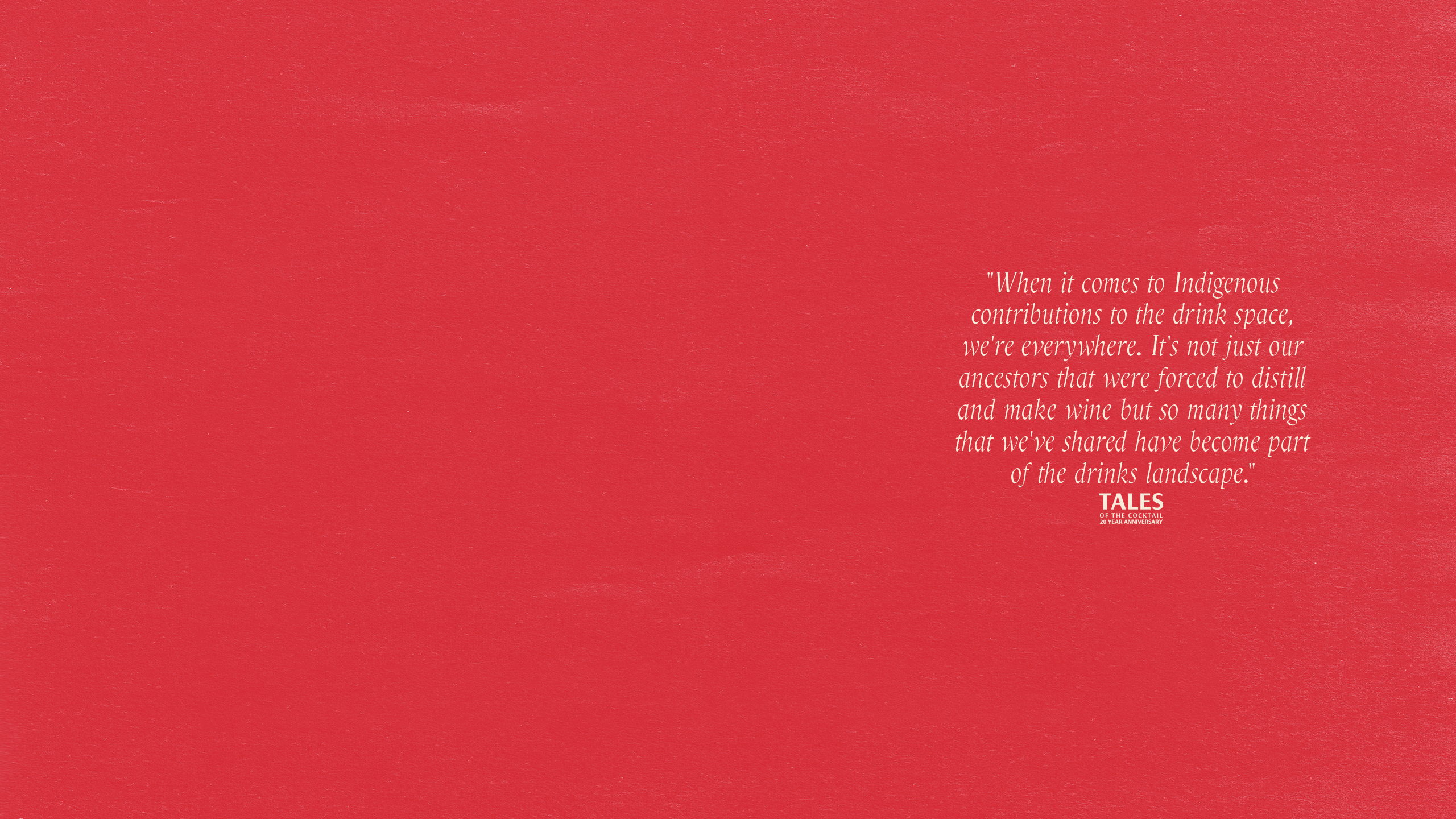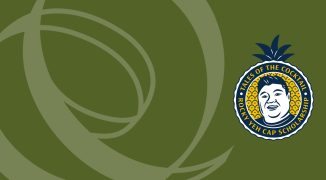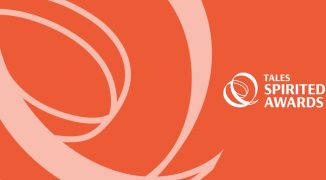Balance is one of the essential skills that any bartender can perfect. To exist in the American drinks industry and be Indigenous has been an exercise in balance, learning, and at times a very lonely existence. We strive for more inclusive representation and to make our industry more accessible to everyone, but it’s not hard to see that the first Americans are thought of last, if at all. Until my collaboration last year with Portland Cocktail Week, Indigenous representation has been limited to occasional articles that mention us centered around colonizer-glorifying holidays, tired spirit animal tropes that remove our beliefs from our people, acts of cultural appropriation, and eugenics-based mythologies that have been proven wrong. Tales of the Cocktail turned 20 this year, but it wasn’t until its 19th year of existence that an Indigenous seminar occurred. When Indigenous bartenders, distillers, brewers, and winemakers are acknowledged, it’s usually our identity that is the interest, not our accomplishments or what we’ve managed to do within our industry. There is a long history of the ancestry of fermented beverages within the Americas dating back to before contact. Still, also alcohol itself is a tool that is used for colonization and can invoke drama within members of our community. To continue the best journey forward, we must start from the beginning and acknowledge everything that has taken us to get where we are today.
I look forward to the day when I don’t have to start an article, seminar, or any other educational platform I’m utilizing with the following paragraph:
The firewater mythology is untrue. Native Americans are not more prone to issues of addiction or alcoholism because they are genetically inferior and cannot metabolize alcohol. Ten years ago, the University of Arizona conducted a study and found that Native Americans are more likely to abstain from alcohol and that heavy drinking and binge drinking behaviors were similar for Native Americans and Non-native drinkers. Colonization is not a one-time past tense event; it is ongoing and causes generational effects. Addiction as a response to colonization is common. It should also be noted that BIPOC Communities often don’t have access to the same quality of addiction care as affluent ones do. These myths have real-world consequences. When children believe these lies about themselves, it becomes a self-fulfilling prophecy. I was disappointed but not surprised when the mythology showed up in the year of your lord, 2016, during a job interview in NYC. This mythology obscures the real cause of addiction and the roles that trauma and the stress of inequality can play in creating it.
Pre-columbian native Nations had ancestral fermented beverages. Based on Anthropological studies and current community traditions, uses were spiritual in nature and had religious connotations. These beverages included corn beers, cactus wines, berry, and root ferments, and even alcoholic gruels. Evidence and oral history of these drinks have been found everywhere, from Hawaii, Alaska, the Southwest, and even up to Vancouver. Even outside of North America there’s a strong history of ancestral fermented beverages, some are even touted for being health beneficial and trending today. Unfortunately due to these eugenics based myths, we’ve lost some of the histories of these beverages.
Before I get further into some of the negative history, I always like to point out a couple of things. One being that British society almost collapsed upon itself multiple times due to issues with gin, but they’re not considered genetically inferior. Two, it’s been noted that colonists are on record as having issues with extreme intoxication. So one can only conclude that the heavily alcoholic spirits brought in by the highly intoxicated outsiders, in contrast with the lighter, ancestral, fermented beverages, definitely played a role in creating these mythologies. The presence of modern distilled spirits came quickly and was widespread, and in many ways, Indigenous Nations didn’t have a chance to adapt and regulate how to deal with this new part of this new substance. Alcohol played a crucial role in signing many treaties and other agreements, thus becoming a tool of colonization. Historical figures such as Benjamin Franklin and Thomas Jefferson expressed sentiments that by drinking, the natives would rid themselves of their culture, and it would be progress. In California, Indigenous people were enslaved in the missions by the priests and forced to make sacramental wine. Indigenous enslaved people were taken from the Carolinas to Barbados as punishment, which adds another grim layer to the story of rum.
When it comes to Indigenous contributions to the drink space, we’re everywhere. It’s not just our ancestors that were forced to distill and make wine but so many things that we’ve shared have become part of the drinks landscape. Potatoes, corn, and other grains that you use to distill come from us. Various botanicals that you add to your gins and vermouths; their knowledge comes from us. The chili peppers, tomatoes, and many spices in your Bloody Mary are Indigenous. All of those almost extinct and rare corn varietals and Indigenous hops – the only reason they’re not endangered is that they’ve been preserved by our seed guardians for generations.
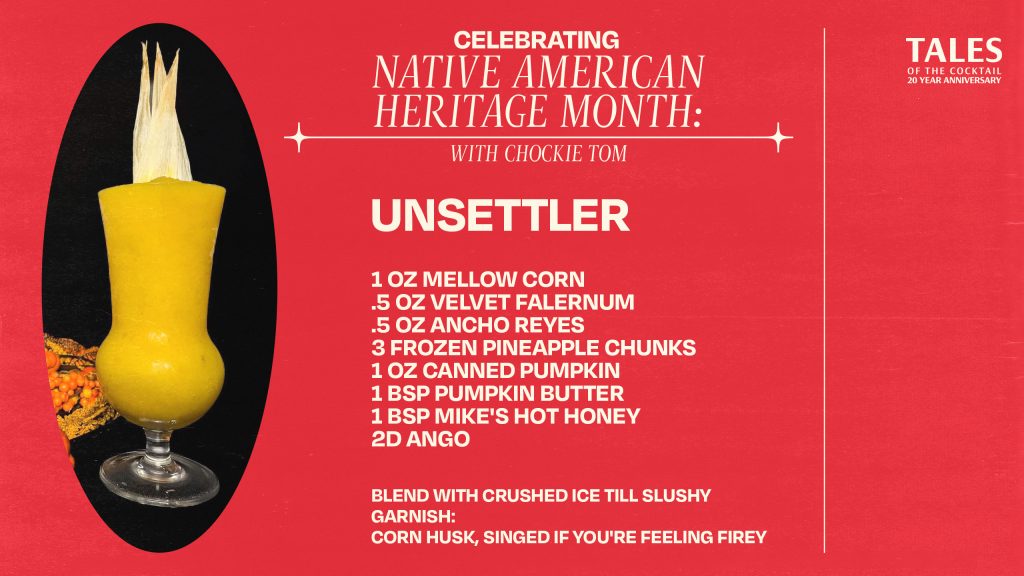
I think I’ve touched on enough reasons that it should come as no surprise that a lot of members of our community choose to abstain. Growing up with this understanding and dealing with family members that had addiction issues stemming from boarding school trauma, it’s always struck me as essential that there are options. The same goes for the diabetes rate that comes from the introduction of government commodities. Making these options healthier as well is something that I strive towards. The most important cocktail program in America is the one at Owamni. Everything on the menu is Indigenous, locally sourced, seasonal, contains no sugar, and is completely NA. When I worked with Sean Sherman and Lucas Herrera for Portland Cocktail Week last year, the biggest thing that stuck with me was how having these options made the restaurant hospitable to people that never felt comfortable being in a bar space before. I’ve had this conversation with people from other communities that also choose to abstain. I firmly believe this growing category is a move in a positive direction.
This year for Tales of the Cocktail, I put together a panel on Indigenous intent and identity in cocktail creation. One of the most important parts that we covered was the importance of sustainability and collaboration in cocktail programming. We’ve survived our apocalypse and kept many of our foodways intact. There is much that we’ve learned when it comes to preservation as means of moving forward. While a lot of brands and industry learning platforms have moved towards land acknowledgment, follow-through includes building relationships with your Indigenous communities. This falls under the philosophy “do no harm”, which should include avoiding cultural appropriation, exploitation of local foraging spaces, commodifying our stolen languages, and misusing our medicines like sage.
As our Native community grows within our industry, I hope that platforms like Tales and brands that would like to work with us, grow with us. I’ve seen the voices of the Native community as well as our guests from other colonized nations that thrive on our land being heard. While a shocking amount of brands still use “tribe” as part of their marketing plan, there’s just as many voices speaking out against it now. Modern contributions from Indigenous people are changing the landscape of our industry, from popups to foraging collaboration, to Super Juice. As of four years ago, it is finally legal to distill on native lands. There are two Native-owned distilleries, seven Native-owned breweries, and four Native-owned wineries, with more on the way. For those of you following at home, I put up an updated list on my Instagram bio every November. There are so many talented Indigenous winemakers, brewers, distillers, sommeliers, chefs, and bartenders, making their presence felt in our industry. While all these things are positive steps forward, it takes more than just one community to make an impact. It should also go without saying that I am not a monolith for my community; these are just my experiences in over two decades in our industry. I can’t tell you how to support all our communities – you have to go to them respectfully and ask them if you want to be an ally.
About Chockie Tom
Co-founder Doommersive, Indigenous Hospitality Activist
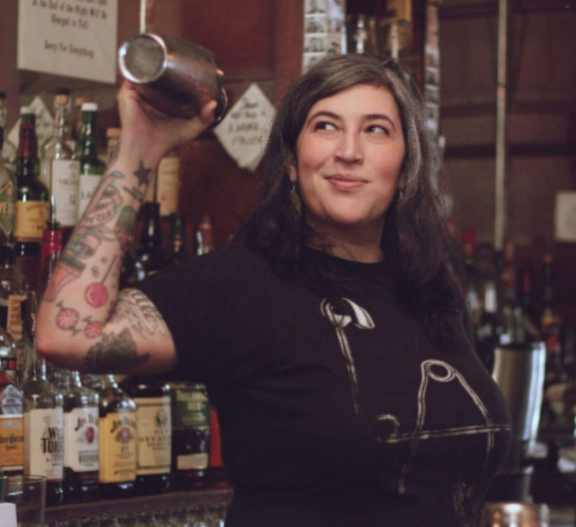
Chockie Tom is an Indigenous, award-winning bartender turned writer who focuses her work on advocacy and cultural empowerment in the bar industry. A literal California native in every sense of the word, Chockie spent her formative years in Los Angeles, honed her bartending and hospitality skills in New York, and currently resides in London. Connecting her Pomo and Walker River Paiute heritage with her advocacy work, she brings a unique perspective to an industry lacking Indigenous visibility. Chockie is best known for her innovative cocktail-building techniques, unique brand and event art, and witty cocktail naming abilities. She is a founder of Doommersive (formerly Doom Tiki). This internationally recognized pop-up series tackles the issues of appropriation in Tiki subculture and fundraises for communities still dealing with colonization’s effects. She was featured as one of the 2021 Imbibe 75 and 2022 Wine Enthusiast Future 40. Her work has been profiled in PUNCH, BUST, The New York Times, and The Kitchn. In 2021 and 2022, she organized and moderated the first Indigenous-led panels in Tales of the Cocktail history. She has also partnered with Portland Cocktail Week to create more Indigenous-focused content and educational materials for Native American Heritage Month and beyond.


